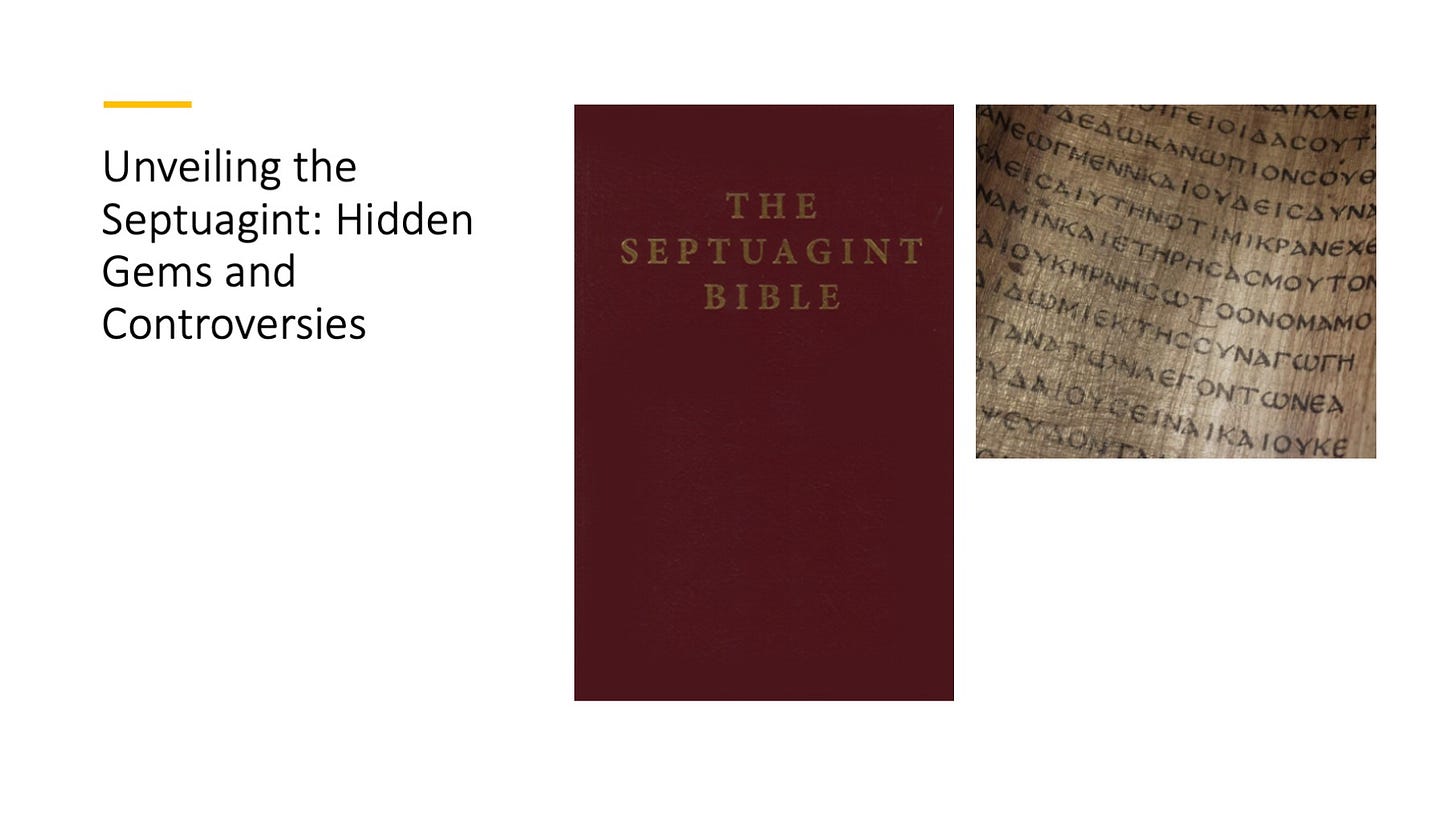Unveiling the Septuagint: Hidden Gems and Controversies
July 27, 2023 - Thursday, 16th Week in Ordinary Time
Daniel 3:52-56
Chapter 3 of the book of Daniel has 33 verses in the Protestant Bible and 100 verses in the Catholic Bible. Why this difference? The answer lies in the Septuagint, an ancient Greek translation of the Hebrew Bible that holds a significant place in Christian history.
Legend has it that in the 3rd century BCE, the Egyptian city of Alexandria boasted a grand library. The king of Egypt, Ptolemy II, desired a Greek translation of the Hebrew Bible for the library and sought assistance from the high priest in Jerusalem. In response, 72 Jewish scholars were sent from Jerusalem to Alexandria for this translation task. Remarkably, working independently, these scholars produced identical translations in just 72 days, seen as a miraculous confirmation of divine assistance.
The Septuagint made the Old Testament accessible to the Greek-speaking world and played a vital role in early Christianity. With the majority of early Christians being Greek-speaking Jews and Gentiles unfamiliar with Hebrew, the Septuagint became the Bible they read, preached, and used for writing commentaries and developing Christian doctrine. Surprisingly, approximately 300 out of the around 350 Old Testament quotations in the New Testament align with the Septuagint.
The Protestant and Catholic Bibles differ in the number of books they contain. While Protestants recognize 66 books, Catholic Bible includes 73. Once again, the Septuagint is at the center of this variation. Seven additional books from the Ancient Greek translation, such as Tobit, Judith, Wisdom of Solomon, Sirach (Ecclesiasticus), Baruch, and 1 and 2 Maccabees, are not found in the Hebrew text. Furthermore, there are additional sections in the book of Esther and the book of Daniel. This brings us to the responsorial psalm for today's reflection.
Chapter 3 of the book of Daniel contains two songs included in the Septuagint but absent in the Hebrew text. The first song, Daniel 3:24-50, serves as a penitential supplication, praising God's justice and acknowledging the sins that led to Israel's national tragedy. The second song, Daniel 3:51-90, calls upon all creation to praise the Lord, even amidst persecution. The fragment we sing today as our responsorial psalm comes from this second song, reminding us of the enduring power of praise in the face of adversity.
The acceptance or exclusion of the additional books found in the Septuagint holds significant implications for the content, arrangement, and interpretation of biblical texts across various Christian traditions. It influences theological doctrines, liturgical practices, and the formation of Christian spirituality. Notably, the Catholic Church and the Churches of the East highly value this ancient translation of the Hebrew Bible in their theology and spirituality.




